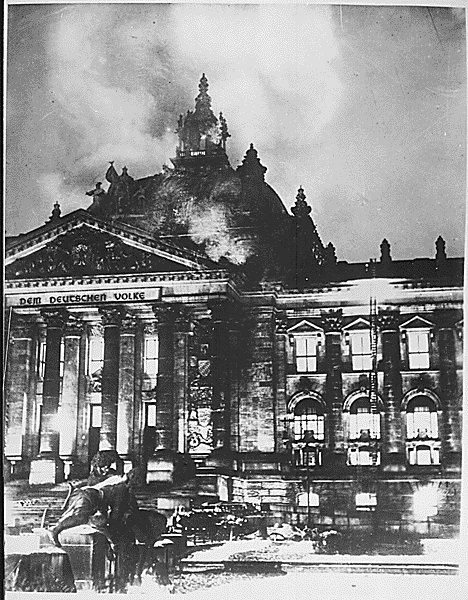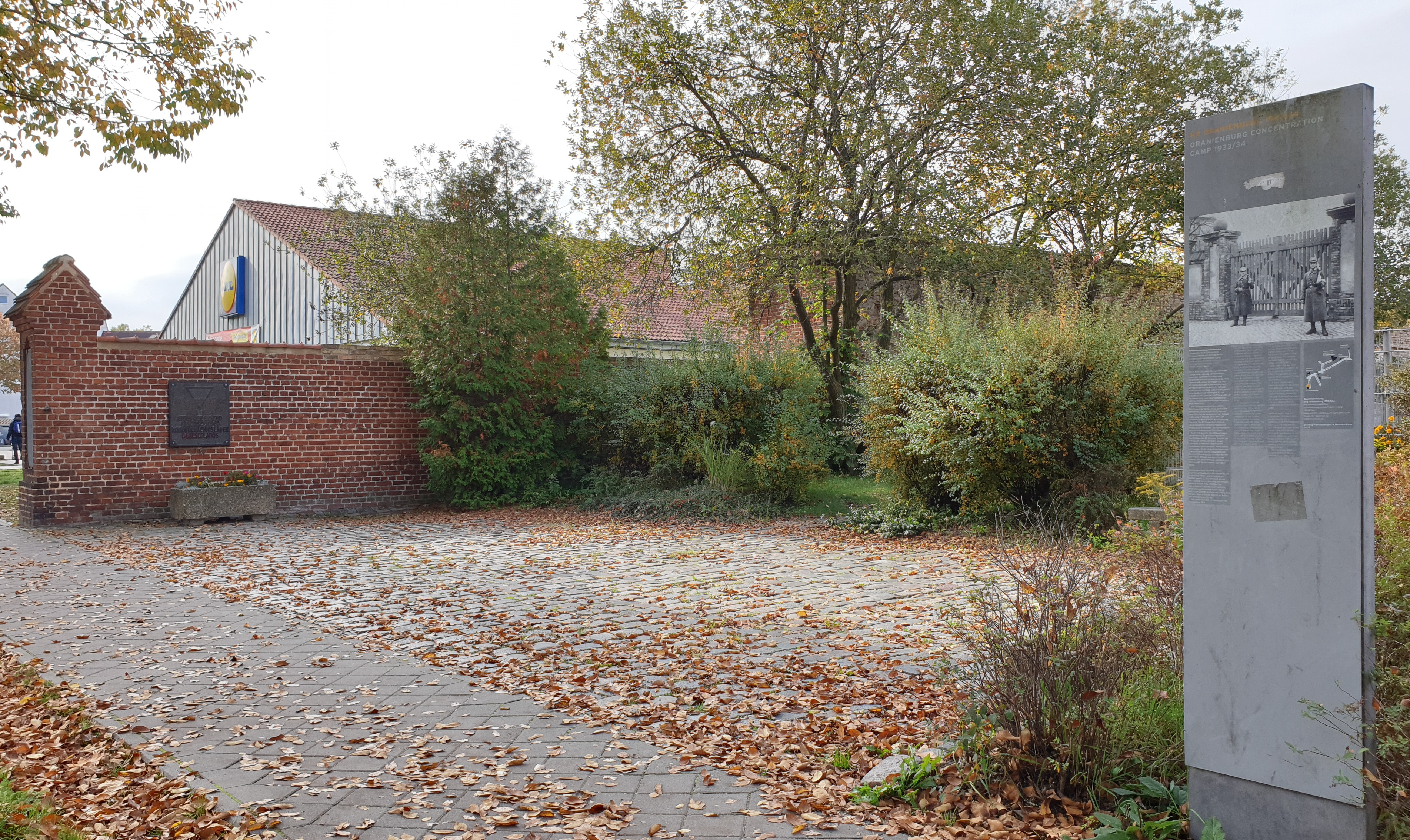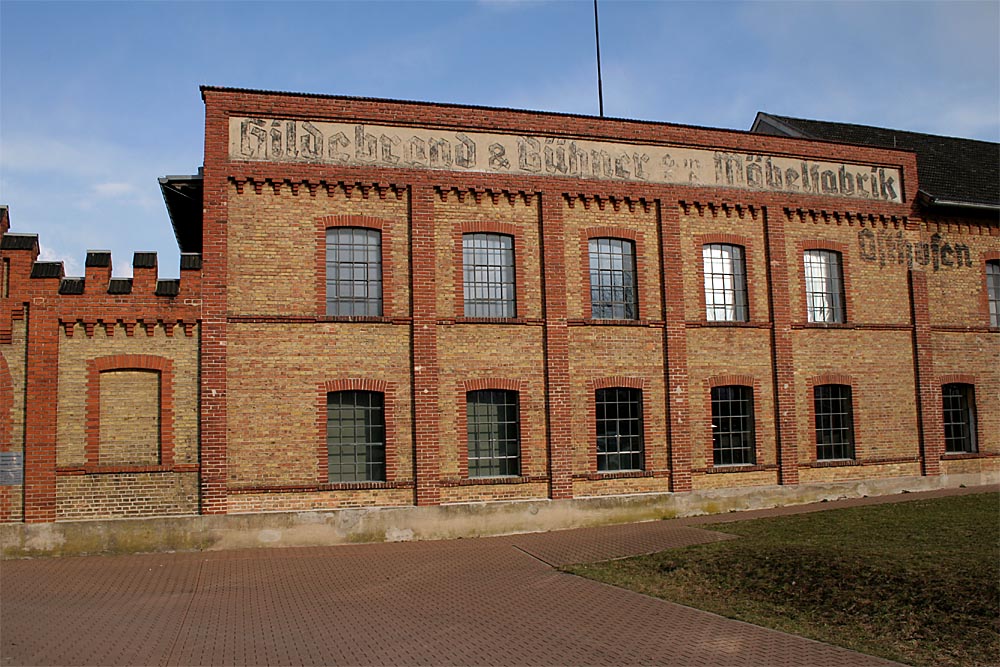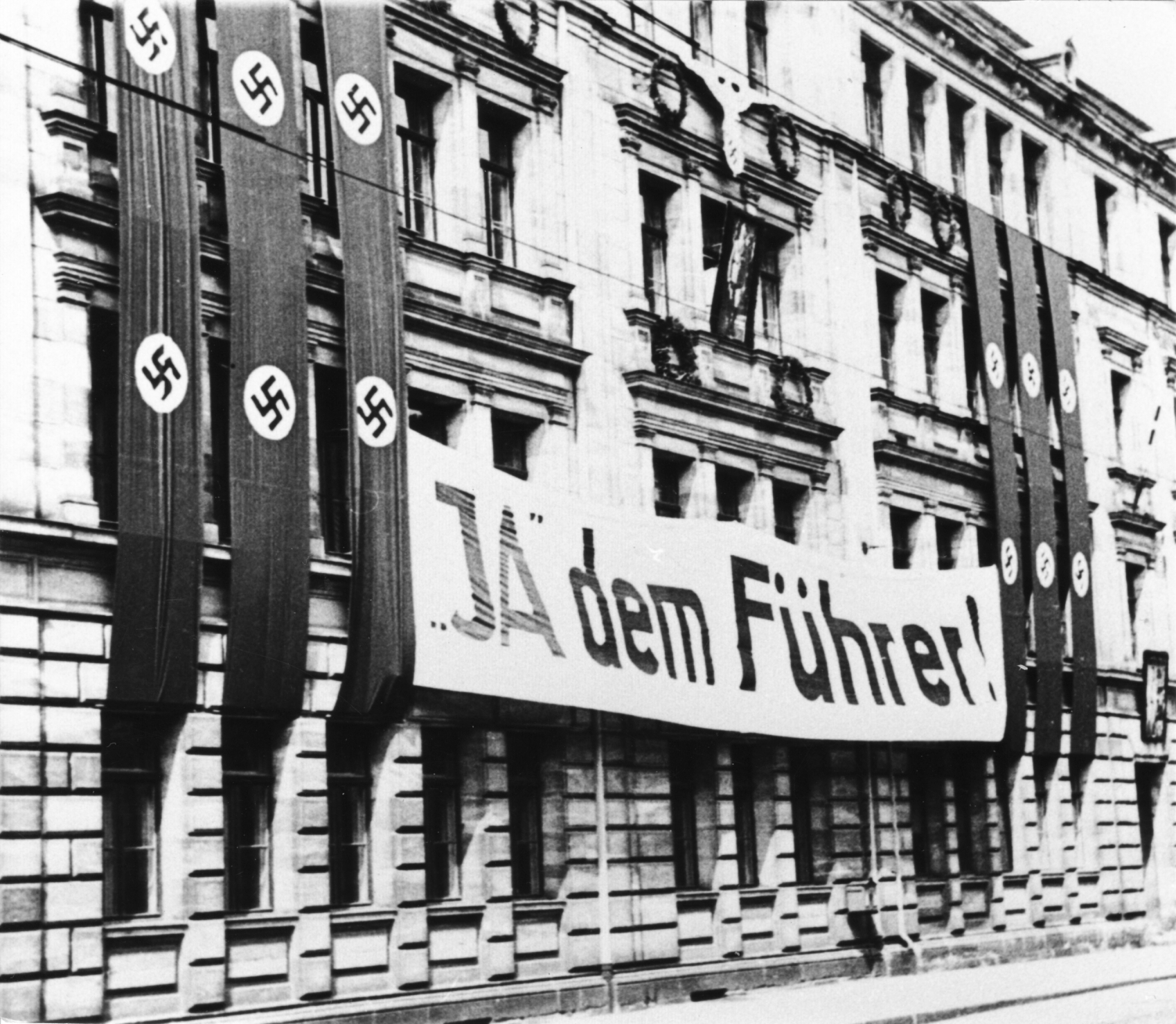|
1933 German Referendum
A referendum on withdrawing from the League of Nations was held in Germany on 12 November 1933 alongside Reichstag elections. The measure was approved by 95% of voters with a turnout of 96%. It was the first of a series of referendums held by the German cabinet under Chancellor Adolf Hitler, after the cabinet conferred upon itself the ability to hold referendums on 14 July 1933. The referendum question was on a separate ballot from the one used for the elections. The question was: "Do you, German man, and you, German woman, approve this policy of your national government, and are you willing to declare as the expression of your own opinion and your own will and solemnly profess it?" () Background Hitler's rise to power Weimar President Paul von Hindenburg appointed Adolf Hitler to the office of Chancellor on 30 January 1933. After his appointment, he wanted the Reichstag to pass an "enabling act" to allow his government to pass laws directly, without the support of the Reichs ... [...More Info...] [...Related Items...] OR: [Wikipedia] [Google] [Baidu] |
Referendum
A referendum, plebiscite, or ballot measure is a Direct democracy, direct vote by the Constituency, electorate (rather than their Representative democracy, representatives) on a proposal, law, or political issue. A referendum may be either binding (resulting in the adoption of a new policy) or advisory (functioning like a large-scale opinion poll). Etymology 'Referendum' is the gerundive form of the Latin language, Latin verb , literally "to carry back" (from the verb , "to bear, bring, carry" plus the inseparable prefix , here meaning "back"Marchant & Charles, Cassell's Latin Dictionary, 1928, p. 469.). As a gerundive is an adjective,A gerundive is a verbal adjective (Kennedy's Shorter Latin Primer, 1962 edition, p. 91.) not a noun, it cannot be used alone in Latin, and must be contained within a context attached to a noun such as , "A proposal which must be carried back to the people". The addition of the verb (3rd person singular, ) to a gerundive, denotes the idea of nece ... [...More Info...] [...Related Items...] OR: [Wikipedia] [Google] [Baidu] |
East Prussia
East Prussia was a Provinces of Prussia, province of the Kingdom of Prussia from 1772 to 1829 and again from 1878 (with the Kingdom itself being part of the German Empire from 1871); following World War I it formed part of the Weimar Republic's Free State of Prussia, until 1945. Its capital city was Königsberg (present-day Kaliningrad). East Prussia was the main part of the Prussia (region), region of Prussia along the southeastern Baltic Sea, Baltic Coast. The bulk of the ancestral lands of the Baltic Old Prussians were enclosed within East Prussia. During the 13th century, the native Prussians were conquered by the crusading Teutonic Knights. After the Northern Crusades, conquest the indigenous Balts were gradually converted to Christianity. Because of Germanization and colonisation over the following centuries, Germans became the dominant ethnic group, while Polish people, Poles and Lithuanians formed sizeable minorities. From the 13th century, the region of Prussia was part ... [...More Info...] [...Related Items...] OR: [Wikipedia] [Google] [Baidu] |
Referendums In Germany
Referendums in Germany are an element of direct democracy. On the federal level only two types of a mandatory binding referendum exist – adopting a new constitution and regional referendums in case of restructuring the states. On the state level, all states have various types of statewide and municipal referendums. Forms of referendums The German referendum system differentiate between three types. * Volksbegehren (literally ''people's request'') is a citizens' initiative – if the state parliament ignores the request it could directly lead into a "Volksentscheid" * Volksbefragung (literally ''people's inquiry'') is a non-binding ballot question and * Volksentscheid (literally ''people's decision'') is a binding plebiscite. The term ''Volksinitiative'' (''people's initiative'') is a synonym of ''Volksbegehren''. On the municipal level the three types are paralleled with * Bürgerbegehren (literally ''citizens' request'') as the local citizens' initiative * Bürgerbefra ... [...More Info...] [...Related Items...] OR: [Wikipedia] [Google] [Baidu] |
1933 In Germany
Events in the year 1933 in Germany. Incumbents National level * President: Paul von Hindenburg * Chancellor: **Kurt von Schleicher (until 28 January 1933) **Adolf Hitler (from 30 January 1933) Events in Germany * 30 January – Nazi leader Adolf Hitler is appointed Chancellor of Germany by President of Germany Paul von Hindenburg. * 1 February – Adolf Hitler gives his "Proclamation to the German People" in Berlin. * 27 February – The Reichstag, Germany's parliament building in Berlin, is set on fire under controversial circumstances. * 28 February – The Reichstag Fire Decree is passed in response to the Reichstag fire, nullifying many German civil liberties. * 1 March – Hundreds are arrested as the Nazis round up their political opponents. * 5 March – German federal election, March 1933: National Socialists gain 43.9% of the votes. * 8 March – Nazis occupy the Bavarian State Parliament and expel deputies. * 12 March – Hindenburg bans the flag of the rep ... [...More Info...] [...Related Items...] OR: [Wikipedia] [Google] [Baidu] |
1933 Referendums
Events January * January 11 – Australian aviator Sir Charles Kingsford Smith makes the first commercial flight between Australia and New Zealand. * January 17 – The United States Congress votes in favour of Philippines independence, against the wishes of U.S. President Herbert Hoover. * January 28 – "Pakistan Declaration": Choudhry Rahmat Ali publishes (in Cambridge, UK) a pamphlet entitled ''Now or Never; Are We to Live or Perish Forever?'', in which he calls for the creation of a Muslim state in northwest India that he calls " Pakstan"; this influences the Pakistan Movement. * January 30 ** Nazi Party leader Adolf Hitler is appointed Chancellor of Germany by President of Germany Paul von Hindenburg. ** Édouard Daladier forms a government in France in succession to Joseph Paul-Boncour. He is succeeded on October 26 by Albert Sarraut and on November 26 by Camille Chautemps. February * February 1 – Adolf Hitler gives his "Proclamation to the German People" ... [...More Info...] [...Related Items...] OR: [Wikipedia] [Google] [Baidu] |
American Political Science Review
The ''American Political Science Review'' (''APSR'') is a quarterly peer-reviewed academic journal covering all areas of political science. It is an official journal of the American Political Science Association and is published on their behalf by Cambridge University Press. APSR was established in 1906 and is the flagship journal in political science. Abstracting and indexing The journal is abstracted and indexed in the Social Sciences Citation Index, ''Current Contents'' / Social & Behavioral Sciences, International Bibliography of Periodical Literature, and the International Bibliography of Periodical Literature. According to the ''Journal Citation Reports'', the journal has a 2016 impact factor of 3.316, ranking it 5th out of 165 journals in the category "Political Science". Editorial team The first three managing editors were W. W. Willoughby (1906–1916), John A. Fairlie (1917–1925), and Frederic A. Ogg (1926–1949). For the 2020–2024 term, the journal is co-le ... [...More Info...] [...Related Items...] OR: [Wikipedia] [Google] [Baidu] |
The Guardian
''The Guardian'' is a British daily newspaper. It was founded in Manchester in 1821 as ''The Manchester Guardian'' and changed its name in 1959, followed by a move to London. Along with its sister paper, ''The Guardian Weekly'', ''The Guardian'' is part of the Guardian Media Group, owned by the Scott Trust Limited. The trust was created in 1936 to "secure the financial and editorial independence of ''The Guardian'' in perpetuity and to safeguard the journalistic freedom and liberal values of ''The Guardian'' free from commercial or political interference". The trust was converted into a limited company in 2008, with a constitution written so as to maintain for ''The Guardian'' the same protections as were built into the structure of the Scott Trust by its creators. Profits are reinvested in its journalism rather than distributed to owners or shareholders. It is considered a newspaper of record in the UK. The editor-in-chief Katharine Viner succeeded Alan Rusbridger in 2015. S ... [...More Info...] [...Related Items...] OR: [Wikipedia] [Google] [Baidu] |
Oranienburg Concentration Camp
Oranienburg was an early Nazi concentration camp, one of the first concentration camp, detention facilities established by the Nazis in the Free State of Prussia, state of Prussia when they Hitler's rise to power#Seizure of control .281931 - 1933.29, gained power in 1933. It held the political opponents of the Nazi Party from the Berlin region, mostly members of the Communist Party of Germany, Communist Party and the Social Democratic Party of Germany, Social Democratic Party, as well as a number of homosexual men and scores of the so-called undesirables. It was established in the center of the town of Oranienburg on the main road to Berlin when the Sturmabteilung, SA took over a disused brewery grounds. Passers-by were able to look inside the prison perimeter. Prisoners were marched through the town to perform forced labour on behalf of the local council. The prison was taken over by the ''SS'' on 4 July 1934, when the SA Night of the Long Knives, was suppressed by the regime ... [...More Info...] [...Related Items...] OR: [Wikipedia] [Google] [Baidu] |
Osthofen Concentration Camp
The Osthofen concentration camp () was an early Nazi concentration camp in Osthofen, close to Worms, Germany. It was established in March 1933 in a former paper factory. The camp was administered by the People's State of Hesse's Political Police, with guards first drawn from SA and SS, later only SS men. The first prisoners were mostly Communists or Social Democrats, but later Jehovah's Witnesses, Seventh-Day Adventists and non-political Jews were also sent to the camp. Usually, Osthofen held 200 people at a time, with a total of about 3,000 prisoners over the existence of the camp. While none of the inmates died in the camp, many became sick due to the poor living conditions and hygiene. Abuse and humiliation of the prisoners, who were used as unpaid labourers, was common. One of the two prisoners who managed to escape from Osthofen, Max Tschornicki, met the author Anna Seghers in her Paris exile, and her novel '' The Seventh Cross'', describes the conditions at a fictional " ... [...More Info...] [...Related Items...] OR: [Wikipedia] [Google] [Baidu] |
Potsdam
Potsdam () is the capital and largest city of the Germany, German States of Germany, state of Brandenburg. It is part of the Berlin/Brandenburg Metropolitan Region. Potsdam sits on the Havel, River Havel, a tributary of the Elbe, downstream of Berlin, and lies embedded in a hilly morainic landscape dotted with many lakes, around 20 of which are located within Potsdam's city limits. It lies some southwest of Berlin's city centre. The name of the city and of many of its boroughs are of Slavic languages, Slavic origin. Potsdam was a residence of the Prussian kings and the German Emperor until 1918. Its planning embodied ideas of the Age of Enlightenment: through a careful balance of architecture and landscape, Potsdam was intended as "a picturesque, pastoral dream" which would remind its residents of their relationship with nature and reason. The city, which is over 1,000 years old, is widely known for its palaces, its lakes, and its overall historical and cultural significance. ... [...More Info...] [...Related Items...] OR: [Wikipedia] [Google] [Baidu] |
Palatinate (region)
The Palatinate (; ; Palatine German language, Palatine German: ''Palz''), or the Rhenish Palatinate (''Rheinpfalz''), is a historical region of Germany. The Palatinate occupies most of the Southern Germany, southern quarter of the German States of Germany, federal state of Rhineland-Palatinate (''Rheinland-Pfalz''), covering an area of with about 1.4 million inhabitants. Its residents are known as Palatines (''Pfälzer''). Geography The Palatinate borders Saarland in the west, historically also comprising the state's Saarpfalz-Kreis, Saarpfalz District. In the northwest, the Hunsrück mountain range forms the border with the Rhineland region. The eastern border with Hesse and the Baden-Württemberg, Baden region runs along the Upper Rhine river, while the left bank, with Mainz and Worms, Germany, Worms as well as the Selz basin around Alzey, belong to the Rhenish Hesse region. In the south, the German-France, French border separates the Palatinate from Alsace. One-thir ... [...More Info...] [...Related Items...] OR: [Wikipedia] [Google] [Baidu] |
1934 German Referendum
A referendum on merging the posts of Chancellor and President was held in Nazi Germany on 19 August 1934, seventeen days after the death of President Paul von Hindenburg. The German leadership sought to gain approval for Adolf Hitler's assumption of supreme power. The referendum was associated with widespread intimidation of voters and significant electoral fraud. Hitler used the resultant large "yes" vote to claim public support to succeed Hindenburg as the ''de facto'' head of state of Germany, though he had assumed presidential powers in addition to his own powers as Chancellor immediately upon Hindenburg's death. The referendum was meant to legitimise that move and allowed Hitler to take the title (Führer and Reich Chancellor). Background Hitler's rise to power Weimar president Paul von Hindenburg appointed Adolf Hitler as Chancellor on 30 January 1933. After his appointment, he wanted the Reichstag to pass an "enabling act" to allow his government to pass laws directly ... [...More Info...] [...Related Items...] OR: [Wikipedia] [Google] [Baidu] |





